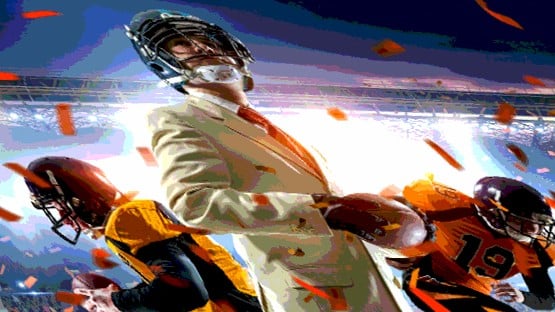
Photo: © Sergey Nivens/stock.adobe.com
“It’s hard to get too excited with college sports anymore. They’re all mercenaries.” I hear this a decent bit from UVA Football and UVA Basketball fans who aren’t so sure about this new era in college sports.
Hard to fault folks for feeling this way.
Our football team has 54 new guys.
The basketball team, that one goes to 11, in terms of the number of new guys.
This is just the way college sports are being played now, and I don’t necessarily like it, either, but I guess, being a fan as well as an alum and sportswriter, maybe we need to look at it as being good that our programs can compete with the big boys, in terms of being able to get guys.
That said, yeah, even the coaches are acknowledging to us media types that it’s not college sports anymore, that managing rosters of players making six and in some cases seven figures is more like the pros.
The hard part here is going to be, how long do the people reaching out to me to lament how things are now keep giving money to the athletics department, for season tickets, for donations, before they just decide, this isn’t what I signed up for?
John Freeman tried to address this with Carla Williams, the athletics director at UVA, and with Tyler Jones, who is the general manager for football, baseball and women’s basketball, on a recent installment of the “Inside Virginia Athletics” podcast.
“That goes back to who we are, right? We’re not going to compromise or change who we are,” said Jones, who feels referencing current student-athletes as mercenaries is “unfair.”
“The traditional route was as a first-year, but now the landscape has changed,” Jones said. “The destination is still the same, a phenomenal institution, but their route was just a little bit different. And if you look at it through that lens, and welcome those transfers into our family, and knowing that this is home, just their path was different, I think people would would start to understand them a little bit differently than being a mercenary. They just had a longer route to get to Charlottesville.”
A big part to making it so that our kids aren’t mercenaries is getting the recruiting right ahead of getting the kids on Grounds – which is to say, don’t just accumulate talent, but focus on fit, both in terms of athletics, but also the academics.
“I think, too, it’s going back to the relationship, trusting that our head coaches, folks like myself and Dr. Williams, are going out and securing student-athletes that belong here, and are going to flourish here and have success,” Jones said. “And looking at it, and I want to shout out our academic staff, and, like, our football program has had several semesters over a 3.0 GPA, so the athletes that we’re bringing in, they understand UVA, and they’re good students, and we’re a results business, and they’re performing in the classroom. So, having that support, first and foremost, and trust through the relationship, and then delivering with student-athletes having success has really helped us stack these things on top of each other in this ever-changing landscape of college athletics.”
The challenge here is going to be, maintaining that connection between the academic mission that is important for a good-sized section of the fan base – people like me, the alums, being a key faction there – while also building winners on the field and on the court.
“The academic values have not changed. We still attract the same student-athletes that value a UVA degree, that still value a UVA education, we still attract those same student-athletes,” said Williams, adding later that the work that student-athletes at a place like Virginia put in while being a Division I, Power 4 athlete is something that we should applaud.
“The student-athletes, whether they have one year of eligibility or two years of eligibility or five years of eligibility, they have all chosen Virginia for the same reasons. We all love Virginia. They are our student-athletes, and this is their school, and that’s how they see it,” Williams said.
